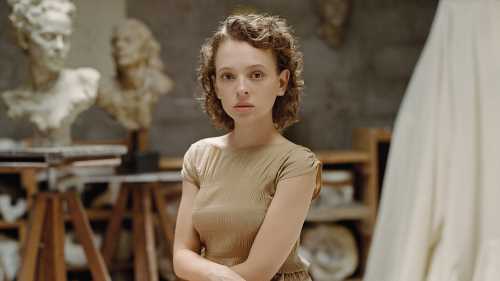
“Maudie” director Aisling Walsh describes her upcoming feature, “Ethel,” in recognizable terms. “We all understand what it is to struggle to be the best at what we can,” Walsh tells Variety. “We’re all looking for that chance to make something happen.”
Written by Celeste Parr, produced by Marie-Claude Poulin (“Brooklyn”) of Sphere Media, and presented at this year’s Venice Production Bridge gap-financing market, “Ethel” tells the true story of Ethel Stark – a trailblazing Canadian musician who broke barriers when she founded a mixed-race, all-female orchestra in the 1940s. A violinist and conductor, Stark eventually brought her Montreal-based ensemble all the way to Carnegie Hall, becoming the first to woman to conduct there.
“Shtisel” and “Unorthodox” lead Shira Haas is attached to star – as revealed exclusively in Variety – with the Canadian-Irish co-production aiming to shoot next year.
“The film is about women finding their voice,” says Walsh. “The orchestra changed their lives. It saw them through the war, saw them through tragedy and heartbreak and loss, and also it saw them out the other side, helping them find a career. [Many] were housewives, bringing up children, and not necessarily working. Being a part of this offered them something that they never had before.”
“They were losing husbands and boyfriends to the war, a lot of whom never returned,” Walsh continues. “So these women’s lives were evolving and changing, and they had to adapt to this history around them by coming together. These women achieved something together that they wouldn’t have done individually, and that changed their lives.”
Backdropped not only by the war but also by the growing sense of liberation filling a province that only granted women the right to vote in 1940, “Ethel” will wed this social history to the personal saga of Ethel Stark herself.
“I’m interested in the solitude of the woman who actually had to run and guide them and lead this orchestra,” says Walsh. “She was an only child who lost her own partner to the war and had to return home to live with her very traditional parents. Leading this orchestra helped her redefine herself. She brought women from different racial and class backgrounds together, helped them develop as musicians, and made them play as one. That’s kind of incredible.”
Read More About:
Source: Read Full Article